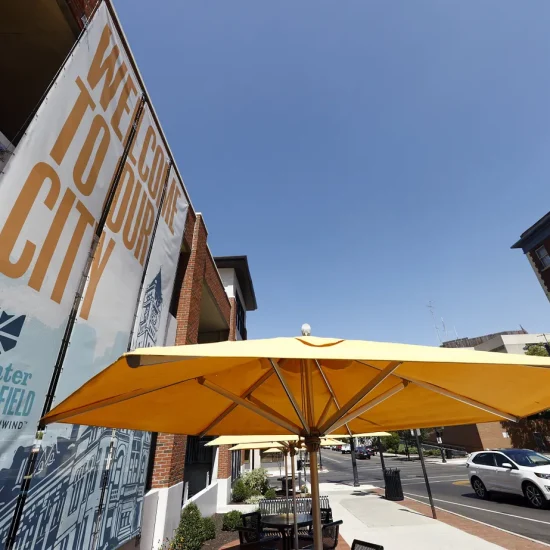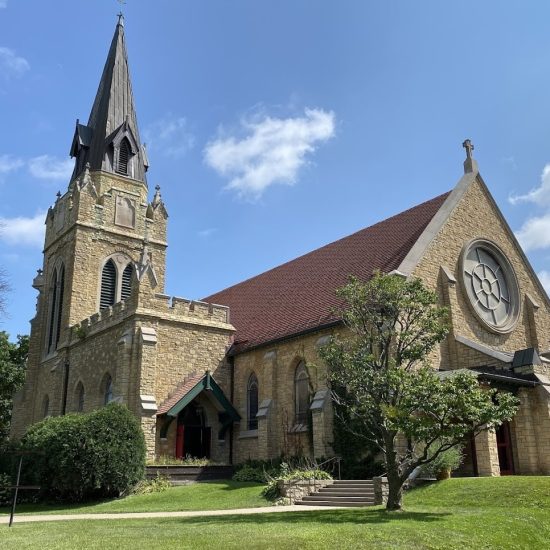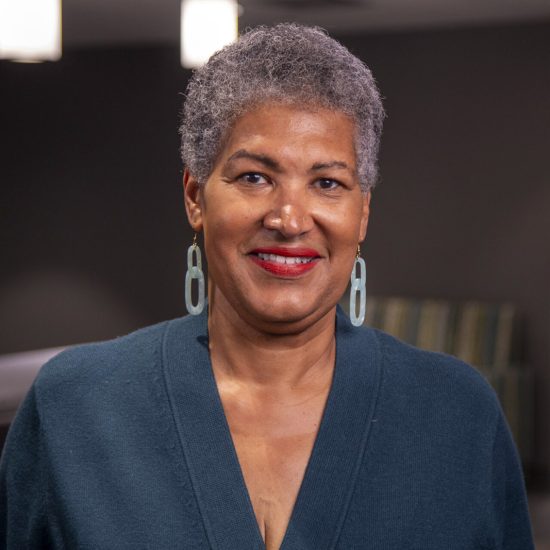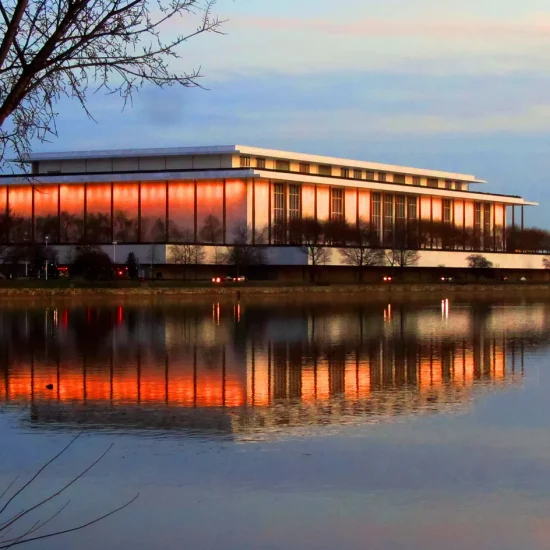NASHVILLE (BP) — At its annual meeting this fall, the Colorado Baptist General Convention (CBGC) announced plans to sell its Denver-area office building and relocate to a smaller facility nearby.
As CBGC executive director Nathan Lorick put it, the convention’s “desire in selling our building is to maximize the reach of our dollars through minimizing our space needs” and “to have our staff be more mobile.”
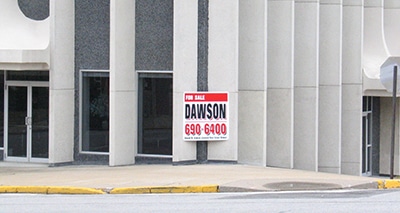 At least 12 of the 42 state conventions that partner with the Southern Baptist Convention have sold, move out of or attempted to sell their buildings in the past decade. The Missouri Baptist Convention efforts stalled after a voter referendum and attempts to move failed a decade ago. (File photo)Those sentiments appear representative of at least eight state conventions that have sold, moved out of or attempted to sell their buildings since 2015. At least 12 of the 42 state conventions that partner with the Southern Baptist Convention have taken such actions in the past decade.
At least 12 of the 42 state conventions that partner with the Southern Baptist Convention have sold, move out of or attempted to sell their buildings in the past decade. The Missouri Baptist Convention efforts stalled after a voter referendum and attempts to move failed a decade ago. (File photo)Those sentiments appear representative of at least eight state conventions that have sold, moved out of or attempted to sell their buildings since 2015. At least 12 of the 42 state conventions that partner with the Southern Baptist Convention have taken such actions in the past decade.
Bill Townes, vice president for convention finance with the SBC Executive Committee, told Baptist Press, “While each state decision to sell/relocate their office has unique factors and circumstances, there are probably some common factors.”
Townes noted via email, “As a result of advances in communication, growth of ‘work from anywhere’ situations and reductions in staffing levels, state conventions have had to evaluate their current facility needs in light of the current realities.” In some cases, those realities include a “significant investment [necessary] to maintain aging facilities that may exceed the size needs of the current staff.”
In addition to the Colorado convention, among state conventions to take building-related actions:
— The Alabama State Board of Missions is scheduled to move into a new facility in January. In 2016 messengers to the Alabama Baptist Convention approved a “key exchange” with the state’s Baptist Health medical organization, in which Baptist Health will receive the previous Board of Missions building in Montgomery and build a new, smaller facility for Alabama Baptists in Prattville.
— The Wyoming Southern Baptist Mission Network voted this year to sell its 1.46-acre property in Casper, which houses a 7,000-square-foot building. Proceeds from the sale will be used to lease office space of approximately 2,000 square feet.
— The Florida Baptist Convention closed on the sale of its previous building this year and moved to a new facility.
— The Tennessee Baptist Mission Board moved into a new building this year after selling its previous facility in 2013 and occupying temporary office space in the interim.
— The State Convention of Baptists in Indiana sold its Indianapolis office in 2016 and constructed a new facility at the Highland Lakes Baptist Camp.
— The Baptist Convention of Iowa sold its office building in 2016 and transitioned its staff to a “mobile office” setup.
— The Baptist General Convention of Texas (BGCT) sold its Dallas building to Baylor University in 2015 and moved to a leased facility.
— The Montana Southern Baptist Convention (MTSBC) voted in 2015 to sell its Billings headquarters and relocate to a smaller facility. But after two years on the market “with very little interest and no offers,” said MTSBC executive director Barrett Duke, convention leaders decided it was “more cost-effective to remain in [the current] building, which is paid for, than to sell it and reestablish an office somewhere else.”
— The State Convention of Baptists in Ohio sold its building, purchased a more modern facility in 2008 and moved into it in 2009.
— The Missouri Baptist Convention’s executive board voted in 2007 to sell the convention’s building and relocate. But a sale opportunity stalled the following year, and the convention eventually decided to remain in its present facility. An attempt to sell the building as part of an attempt to fund a new justice center in 2005 also failed, rejected 3-to-1 by voters.
— The Dakota Baptist Convention sold its building in 2007 and moved to a smaller leased office, with some employees working remotely.
Tech advances
When the Baptist Convention of Iowa sold its building, executive director Tim Lubinus wrote in a blog post, “With the digital revolution, many organizations have already discovered that their office facilities are not being used as they once were.”
Lubinus added that a transition to mobile offices would allow convention staff “to spend more time with churches and pastors, work from home offices and public places and increase the use of digital means of communication and collaboration.”
The Dakota Baptist Convention felt strongly enough about the advantages of telecommuting that its executive board stated last year the convention will not own another building in the foreseeable future, executive director Garvon Golden said.
Staff reductions
In 2000, state conventions employed a cumulative 1,750 staff members, according to 2013 survey data submitted to the SBC Executive Committee by 32 state conventions. By 2013, that number decreased 22 percent to 1,350 employees. EC President Frank S. Page reported an additional 8 percent decline by 2016.
Such staffing reductions left conventions like those in Tennessee, Alabama, Florida and Texas (BGCT) with more office space than needed.
LifeWay Christian Resources cited a similar excess of space as a factor in the decision to sell its downtown Nashville property and move to a new facility this fall.
Building maintenance costs
The “old building was falling down,” Jack Kwok, executive director of the State Convention of Baptists in Ohio, said of the convention’s previous facility.
Conventions in Alabama, Florida, Indiana, Tennessee and Texas (BGCT) likewise said building maintenance costs at their old facilities were diverting funds that might have been used for ministry.
“It really did come down to a matter of stewardship and practicality,” said Chris Turner, communications director for the Tennessee Baptist Convention.
More money through CP
When the Florida Baptist Convention sold its building this year, it forwarded 51 percent of proceeds ($3.1 million) to SBC causes through the Cooperative Program — the same percentage the Florida convention forwards of CP receipts from churches.
The Dakota Baptist Convention invested some $200,000 from its building sale with the Southern Baptist Foundation, saw it grow to $280,000 in a decade and gave 10 percent of that total to SBC CP causes this year, Golden said.
Real estate boom
In some cases, former state convention offices were located in areas experiencing “economic redevelopment” and an accompanying rise in real estate prices, said Townes of the Executive Committee. That gave conventions “a unique opportunity to sell/exchange their facilities at very favorable rates.”
For instance, the Tennessee Baptist Convention’s 40-year-old property in Brentwood, Tenn., sold in 2013 for nearly $9 million. The old Florida Baptist Building in Jacksonville increased in value by more than $5 million over a half century, according to BP reports.
Likewise, LifeWay experienced a significant increase in the value of its previous facility, and rising real estate values in downtown Nashville were a contributing factor to the SBC’s June 2017 decision to authorize sale of the SBC Building if a favorable offer is made.
Ultimately, however, building sales are not about money, convention leaders say.
BGCT executive director David Hardage appeared to express a sentiment representative of all state convention building transactions when he said in a news release, “It’s more than dollars and cents — it’s about flesh, blood and souls.”
Additional information was provided by Word&Way.


